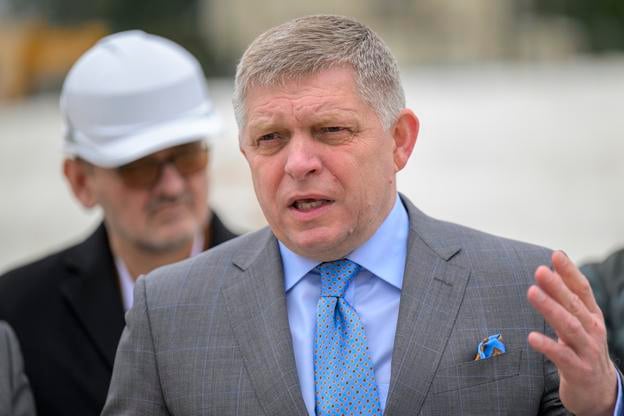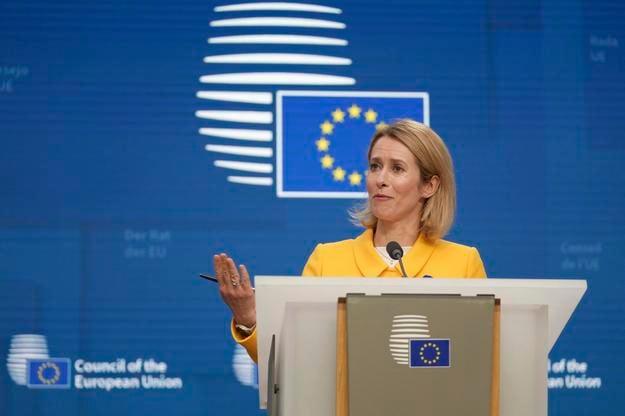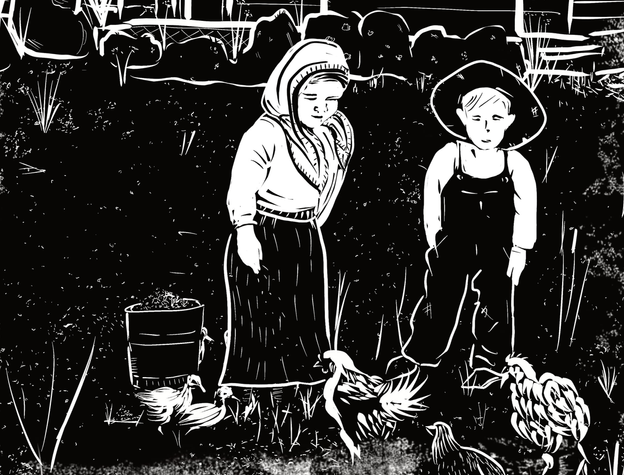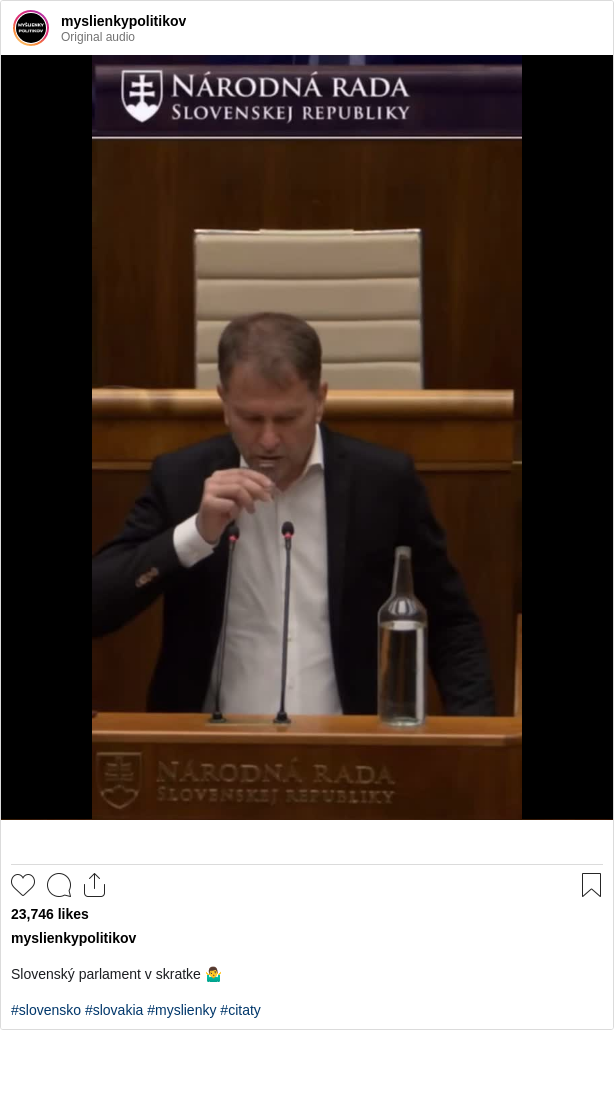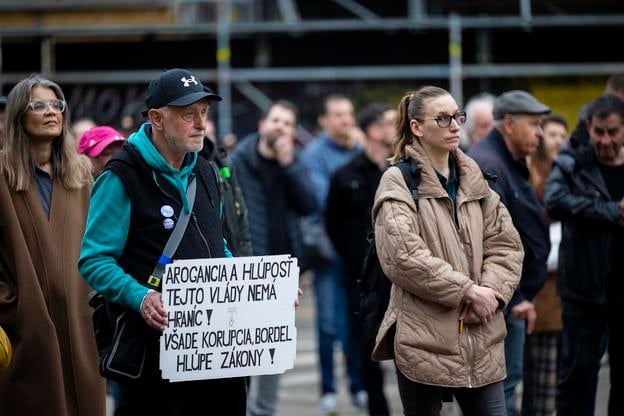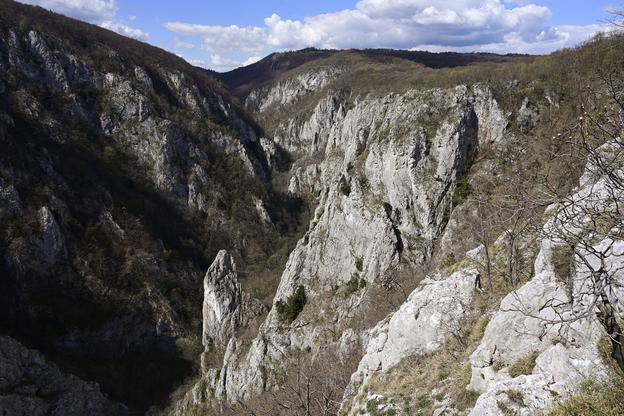Good to have you on board! Here’s your latest Today in Slovakia – Tuesday’s top news, all in one place.
Fico clashes with Brussels over Moscow
Prime Minister Robert Fico is preparing to attend the annual military parade in Moscow on 9 May, a move that would make him the only sitting leader of a European Union member state to do so this year. Despite warnings from Brussels, Fico reaffirmed his intention to travel to Russia on Tuesday.
The premier, who represents the populist Smer party, already caused a stir in December 2024 with a surprise visit to Russian President Vladimir Putin in Moscow. Weeks earlier, in November, he publicly announced on social media that he had “gladly accepted the official invitation from the President of the Russian Federation, V. Putin, to attend these important commemorations.” Fico justified his planned attendance by referencing Slovakia’s “commitment to the legacy of the fight against fascism” and the Red Army’s role in liberating much of Europe during the Second World War. However, his narrative omitted a controversial historical footnote: that the same Soviet army had, in 1939, joined Nazi Germany in invading Poland.
On Monday, 14 April, European Union foreign affairs chief Kaja Kallas issued a pointed warning. “What was also discussed and very clearly said by different Member States is that any participation in the 9th of May parades – or celebrations – in Moscow will not be taken lightly on the European side, considering that Russia is really waging a full-scale war in Europe,” she said. Speaking to journalists, she added, “We made it very clear that we do not want any candidate country to participate in these events on the 9th of May in Moscow.” She did not, however, specify what consequences such participation might entail.
Fico fired back the following day in a social media post, calling Kallas’s words “disrespectful”. “Is Ms Kallas’s warning a form of blackmail or an announcement that I will be punished upon returning from Moscow?” he wrote. “I do not know, but I know that the year is 2025, not 1939.” The prime minister did not explain his reference to 1939, though it appeared to be an allusion to the formation of the Slovak fascist state, which had limited diplomatic agency and strong ties to Nazi Germany.
Fico now argues that his foreign policy is independent, but his planned trip aligns him with a group of non-Western and often authoritarian leaders expected to attend the Moscow celebrations. Among them are Serbian President Aleksandar Vučić, Chinese President Xi Jinping, Belarusian leader Alexander Lukashenko, Indian Prime Minister Narendra Modi, and Brazilian President Luiz Inácio Lula da Silva.
The Moscow-leaning Slovak leader failed to condemn Russia’s latest deadly attack on the Ukrainian town of Sumy on Monday, claiming he did not have sufficient information. By then, numerous leaders — including officials in Slovakia — had already denounced the strike. As of Tuesday, he had still not issued any condemnation.
In January, Deputy Speaker of Parliament Tibor Gašpar (Smer) visited Moscow and, after meeting with Duma chairman Vyacheslav Volodin, confirmed that Slovakia would send “a truly large delegation” to the 9 May parade. The full composition of that delegation remains unclear.
Zelensky’s invitation: As Fico prepares to travel to Moscow, Ukrainian President Volodymyr Zelensky is working to bring as many European leaders as possible to Kyiv. His initiative has drawn support from the EU’s foreign policy chief, Kaja Kallas. But will Slovak President Peter Pellegrini be among them? In recent comments, Pellegrini suggested he would only consider a visit to Ukraine if he could bring back tangible results for Slovak citizens — such as an agreement with Zelensky on the resumption of Russian gas transit through Slovakia. “But no one should expect me to make courtesy visits to Kyiv just because it’s considered good form for a nice photo,” he said. The remark came despite the president’s fondness for sharing stylised photographs of himself on social media.
War in the Slovak parliament: On 15 April, MPs rejected a proposal by a group of opposition MPs to adopt a resolution marking the third anniversary of the Russian Federation’s military aggression against Ukraine. Coalition lawmakers, joined by some independent MPs, also voted to prevent the chamber from debating a response to Sunday’s (13 April) Russian missile strike on the Ukrainian city of Sumy, which killed dozens of civilians. The opposition’s proposals were blocked just one day after Prime Minister Robert Fico refused to directly condemn the attack on Sumy.
MORE STORIES FROM THE SLOVAK SPECTATOR
Factory exodus: Danish shoemaker Ecco will close its Slovak plant and lay off 650 workers. German shoemaker Lowa will also shutter its Handlová plant by August, raising new concerns about investor confidence under Prime Minister Robert Fico.
Price spike: Slovakia’s inflation hit a 15-month high in March, with services and essential goods driving a 4 percent annual rise and analysts warning that a new transaction tax could push prices even higher.
Easter closures: Most major supermarkets in Slovakia will be closed on Good Friday, Easter Sunday, and Easter Monday, with extended hours on Maundy Thursday and Holy Saturday.
Citizenship bid: Žilina’s Ghanaian midfielder Samuel Gidi has applied for Slovak citizenship just weeks before the Under-21 European Championship.
Season shift: As nature awakens across central Europe, the International Women’s Club of Bratislava embraces a spirit of renewal, calling for compassionate living and mindful coexistence with the natural world.
If you like what we’re doing and want to support good journalism, buy our online subscription with no ads and a print copy of The Slovak Spectator sent to your home in Slovakia. Thank you.
From Visolaje to Philadelphia
A Slovak-American granddaughter returns to her roots
Beverly Clifford retraced her grandmother’s migration from rural Slovakia to America. Her journey to Visolaje, Trenčín Region, fuelled by stories and slivovica, brought her face to face with a fading past — just in time to witness the house where it all began.
SATIRICAL AI VIDEO
PM Fico in prison
A viral satirical video depicting Prime Minister Robert Fico in handcuffs walking through a prison corridor — later smoking a cigarette with Defence Minister Robert Kaliňák — has sparked controversy in Slovakia. Originally created by the Instagram account Made in Slovakai, the AI-generated video was shared without permission by former prime minister Igor Matovič and the political movement Slovensko, amassing nearly a million views across platforms. The creator criticised the unauthorised use, telling the news website Aktuality.sk that the video was intended as satire, not political propaganda, and expressed frustration over the lack of credit or proper attribution. “My work is independent and not meant to serve any political party,” the author said. Slovensko also shared another AI-generated video by Made in Slovakai without credit, showing Robert Fico meeting Vladimir Putin. The clip gained over 500,000 views. The party also manipulated Fico’s voice in a separate video, altering his remarks to satirically reference criminal cases involving figures shown in the footage.
IN OTHER NEWS
The parliamentary session on Tuesday began with an unexpected topic: alcohol. The Slovensko movement proposed an amendment to the Rules of Procedure that would allow MPs and others attending the session to be asked to undergo testing for alcohol or other intoxicating substances. Slovensko leader Igor Matovič even brought a bottle of “alcohol” (in reality, plain water) to the speaker’s lectern to highlight what he described as a double standard — while food is banned in the chamber, alcohol is not.
MPs also debated a controversial amendment to the law on non-governmental organisations until 23:39 on Tuesday, before adjourning the session until Wednesday morning. The debate began at 14:00, with the governing coalition imposing a 12-hour limit on discussion. Several opposition lawmakers have called for the draft legislation to be withdrawn and redrafted, criticising the bill for bypassing the standard legislative process. While the core proposal spans roughly 10 pages, two last-minute amendments submitted ahead of the session each stretch to 20 pages. One of the amendments proposes scrapping a section on lobbying from the original bill — further fuelling criticism over the rushed and opaque manner in which the legislation is being handled.
Lawmakers on Tuesday voted down a resolution acknowledging the injustices inflicted on the Roma minority by anti-pandemic measures during the Covid-19 pandemic. The proposal, tabled by a group of opposition Progressive Slovakia MPs, sought to issue a formal apology for what they described as discriminatory treatment. According to the authors of the motion, “During the first and second waves of the Covid-19 pandemic in 2020, discriminatory and stigmatising measures were implemented against the Roma minority — in particular, the blanket quarantining of settlements and dwellings where members of the community were living at the time. These measures were clearly disproportionate when compared with those applied to the majority population, which was not subject to such extensive quarantining.”
Slovakia’s transaction tax is creating serious complications in the healthcare sector, according to Health Minister Kamil Šaško (Hlas). The Slovak National Party (SNS), a junior coalition partner, has submitted a proposal for the May parliamentary session to abolish the transaction tax for sole traders and small businesses with an annual turnover of up to €100,000. The party also aims to open talks with coalition partners on scrapping the tax altogether by 31 December 2025. However, Finance Minister Ladislav Kamenický (Smer) pushed back against the initiative on Tuesday, stating that the financial transaction tax cannot be abolished, even partially, due to the government’s fiscal consolidation plans. He warned that exempting sole traders and small businesses from the tax would cause a significant shortfall in the state budget—potentially as much as €200 million.
Employees will not have the option to request a four-day working week while maintaining the same number of hours as in a five-day schedule. The proposal, tabled by a group of MPs from the opposition Slovensko movement as part of an amendment to the Labour Code, failed to make it past the first reading in parliament. (TASR)
Slovenská sporiteľňa, the lender with the largest share of repaid loans in Slovakia (24.68 percent), has announced its first mortgage rate adjustments of the year, following a similar move by Tatra banka last week. As of Tuesday, mortgage rates at Slovenská sporiteľňa have been cut by between 0.1 and 0.6 percentage points annually, depending on the length of the fixed-rate period. The most significant drop applies to mortgages with a one-year fix, where the interest rate has been reduced from 4.69 percent to 4.09 percent. (financnykompas.sk)
A seven-year-old boy fell from the seventh floor of a residential building on Stavbárska Street in Bratislava on Tuesday afternoon. He died at the scene from his injuries, according to the TASR news agency.
Textile waste that can be recycled or reused will continue to be sent to landfill, after MPs on Tuesday rejected an opposition-sponsored amendment to the Waste Act aimed at banning the practice. (TASR)
WEDNESDAY WEATHER BRIEFING: Largely clear to partly cloudy, with some areas of low cloud in the morning. Isolated light showers possible. Very warm, with daytime temperatures ranging from 20°C to 26°C. (SHMÚ)
HAPPY NAME DAY: April 16 is a special day for Dana and Danica, so if you know one, don’t forget to send your warmest wishes. Všetko najlepšie!
Thank you for subscribing and reading. It means a lot to us.
P.S. If you have suggestions on how our news overview can be improved, you can reach us at editorial@spectator.sk.
Follow The Slovak Spectator on Facebook, LinkedIn and Instagram(@slovakspectator). For news from Slovakia in Ukrainian, click here or follow Novyny on Telegram, Facebook, and Instagram.


